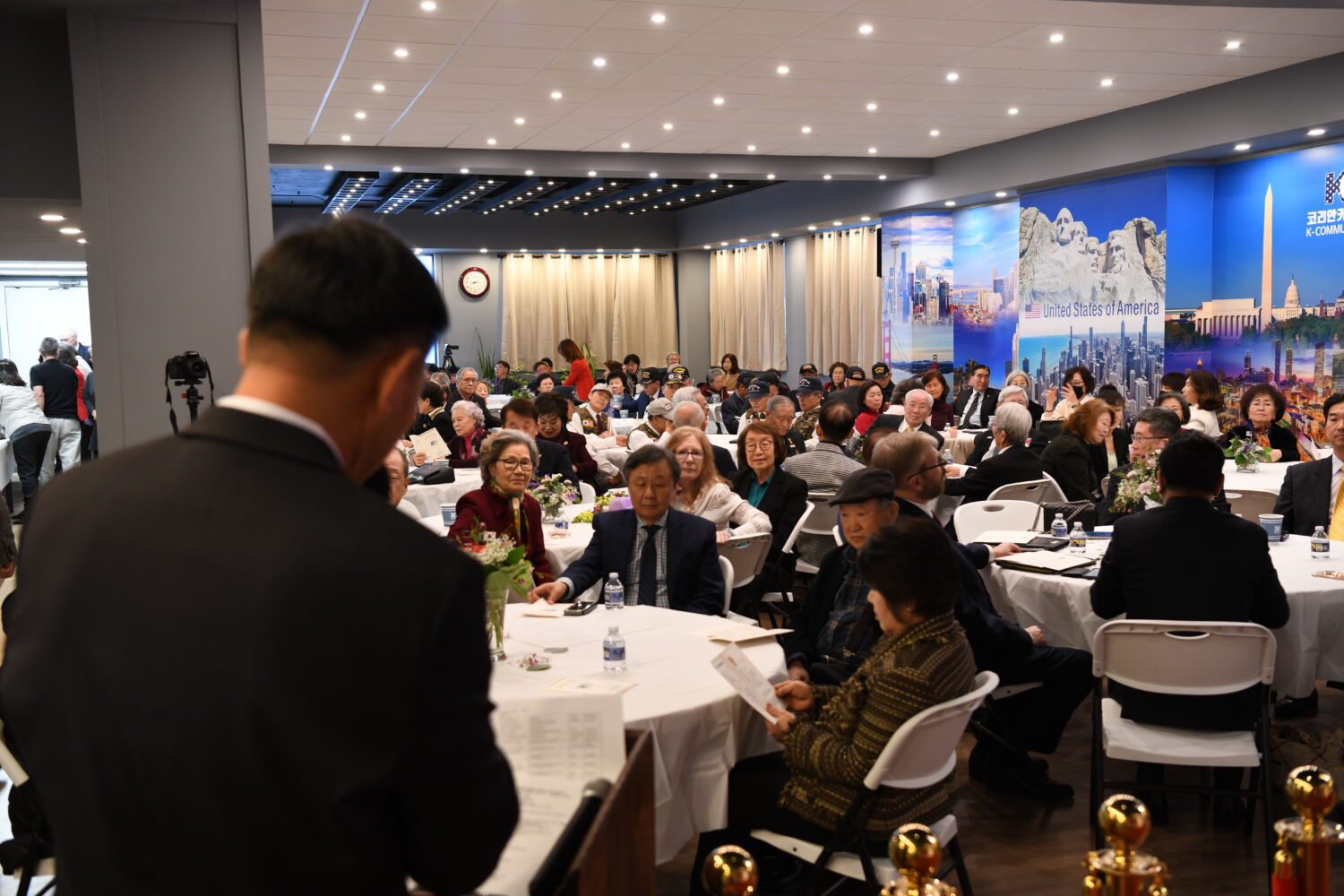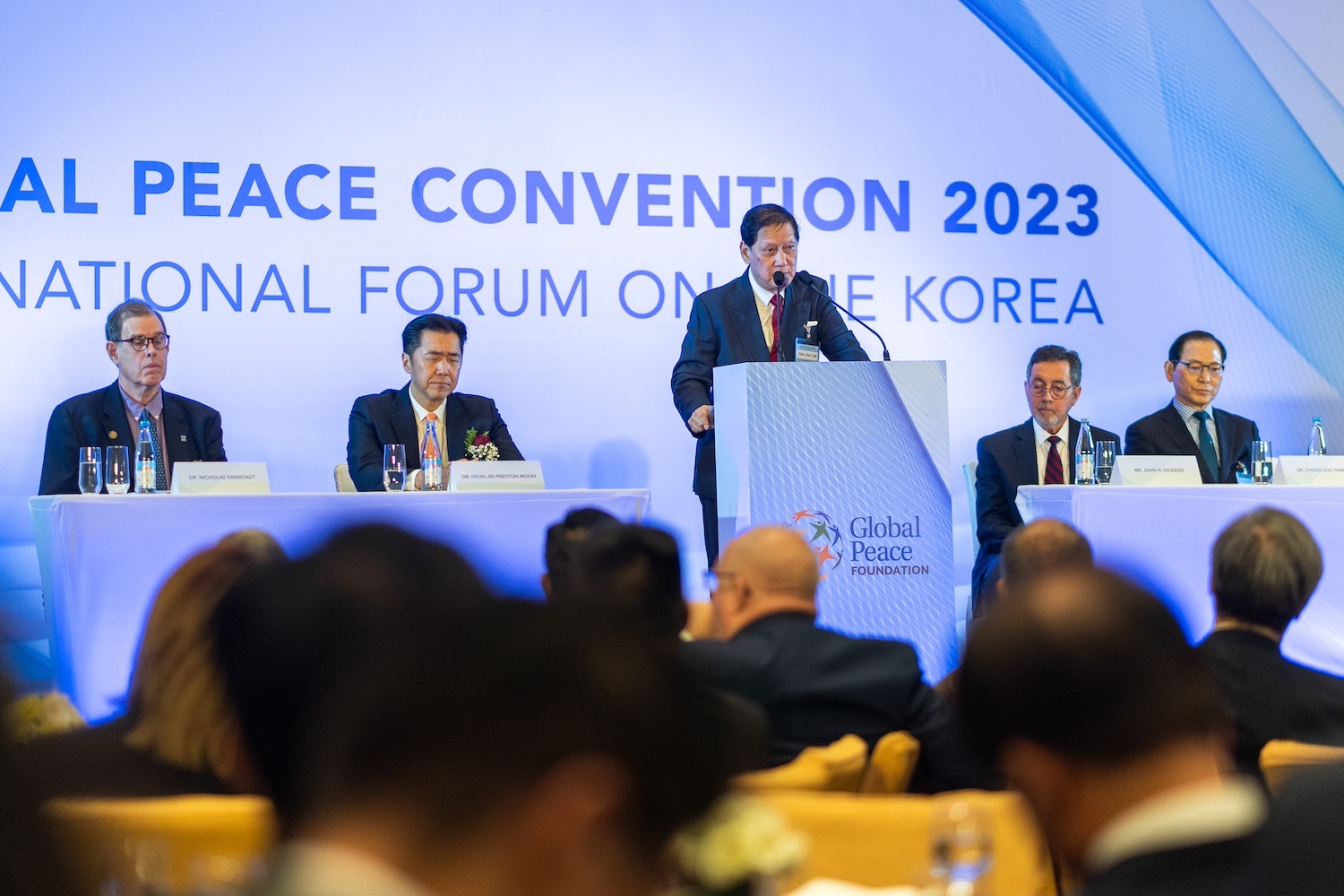The latest convening of the International Forum on One Korea in Seoul on October 2, “Free and Unified Korea: A Catalyst for Regional and Global Peace and Development,” urged unification as the ultimate and permanent solution to the security and human rights crises, and as a catalyst for regional and global peace and development.
The recent trilateral summit of U.S. President Joe Biden, Japanese Prime Minister Kishida Fumio, and South Korean President Yoon Suk Yeol at Camp David stated clear agreement on the goals of “complete denuclearization of the Democratic People’s Republic of Korea in accordance with relevant United Nations Security Council resolutions,” a commitment to address North Korean human rights and humanitarian issues, and support for “a unified Korean peninsula that is free and at peace.”
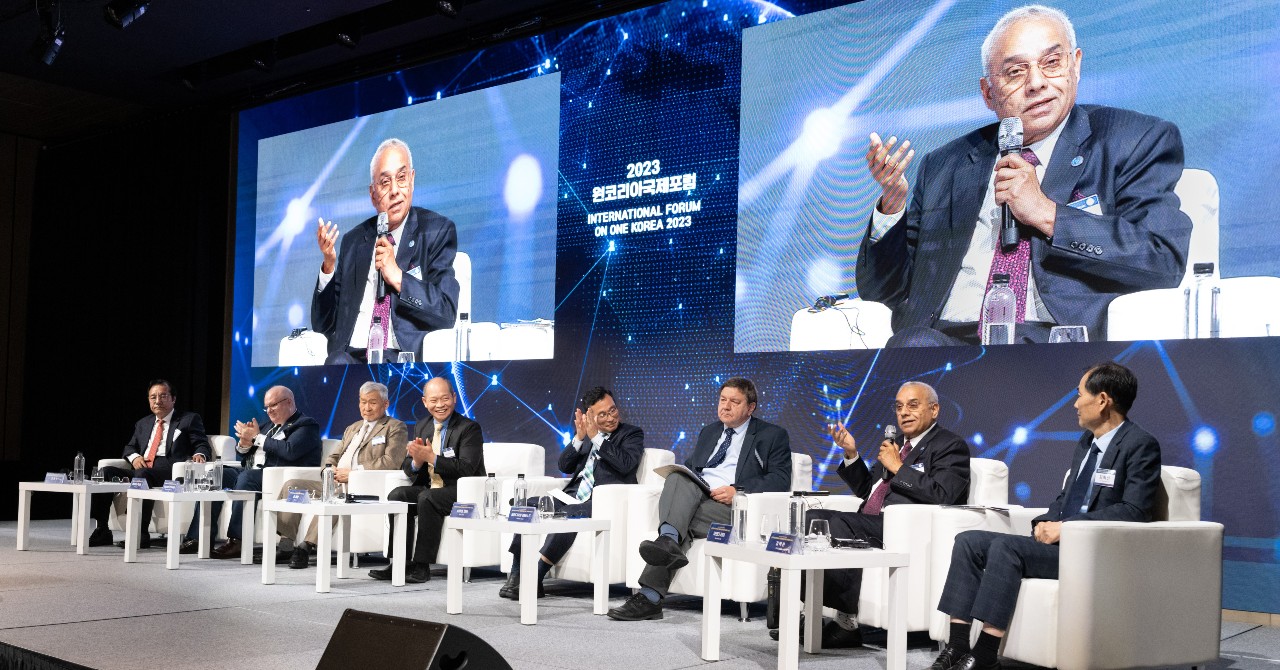
Experts discuss security, economics, and approaches to build support for a unified Korea at the International Forum on One Korea in Seoul.
Yet deteriorating security conditions in the region, decreasing popular support especially among youth in South Korea, the continuing Russia-Ukraine war, intensifying U.S.-China geopolitical confrontation, and sobering worldwide economic setbacks and uncertainty present obstacles to the priority of ending the division of the Korean peninsula.
Underscoring the urgency of unification, prominent experts, policymakers, journalists, and civil society leaders from Korea and the international community called for steps to build stronger and broader global support for a free and unified Korea during a three-day forum and series of public events.
Opening remarks from civil society leaders and ROK National Assembly members emphasized the need for a coordinated international movement for unification and the resolve to end ongoing human rights abuses that are violating fundamental freedoms of Koreans living in the North.
Noting the many challenges to advancing unification presented by North Korean provocations and international economic, military, and geopolitical pressures, Baek Seung-ju, president of the Korean War Memorial Association and former ROK National Assembly member and Deputy Defense Minister, said “the message of Korean peninsula unification can fundamentally solve the challenges posed by the reality of international politics. Unification means that the North Korean regime no longer has to be obsessed with nuclear weapons.”
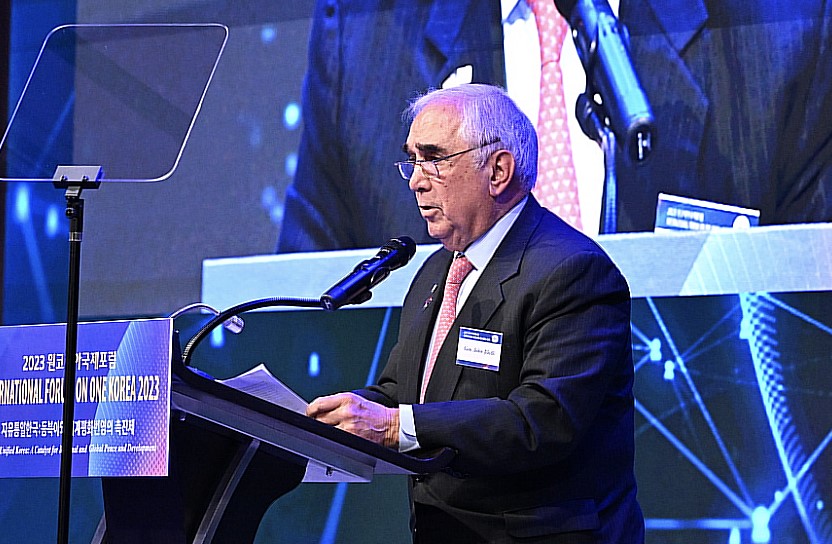
Former U.S. Army General John H. Tilelli stressed the continuing alliance and commitment of U.S. and ROK forces to a free Korea.
Adding that the confrontation between the United States and China could naturally resolve into a partnership by removing the Korea flashpoint, Baek said the unification process can be “a catalyst for peace and prosperity in Northeast Asia and the world, a solution that can solve various challenges in international politics at once.”
Former U.S. Army General and Chairman of the Korean War Veterans Memorial Foundation John H. Tilelli emphasized that the main initiators of change will be the people of Korea. Having witnessed the citizen-led efforts to reunify Germany, Gen. Tilelli said, only “continuity of purpose, patience, persistence and strategic thought will make this happen.”
“The process of developing North Korea and gradually integrating it into the South Korea’s economy will open many new opportunities for new creative enterprises that will harness and reward the talents of youth.”
–GPF Chairman Dr. Hyun Jin P. Moon
He stressed the continuing alliance and commitment of U.S. and ROK forces, who serve side by side everyday with common purpose. “President Yoon has promoted major policies to strengthen the alliance with the U.S. and extending global alliances,” he said. “While the military is committed each day to defense, the real commitment is to set the conditions for peace on the peninsula and a reunified Korea.”
Keynote speaker Dr. Hyun Jin Preston Moon, founder and Chairman of the Global Peace Foundation, told the forum that Koreans today “have two major, interconnected challenges. One is the re-unification of our traditional homeland. That is the only viable solution to the threat of the Pyongyang regime.
“It must be driven by a civil society movement of Koreans, in the South and the diaspora, with broad international support. Inter-governmental talks alone will never lead to unification. For over seven decades, it has achieved nothing to date except to help create a more powerful nuclear-armed North Korea.
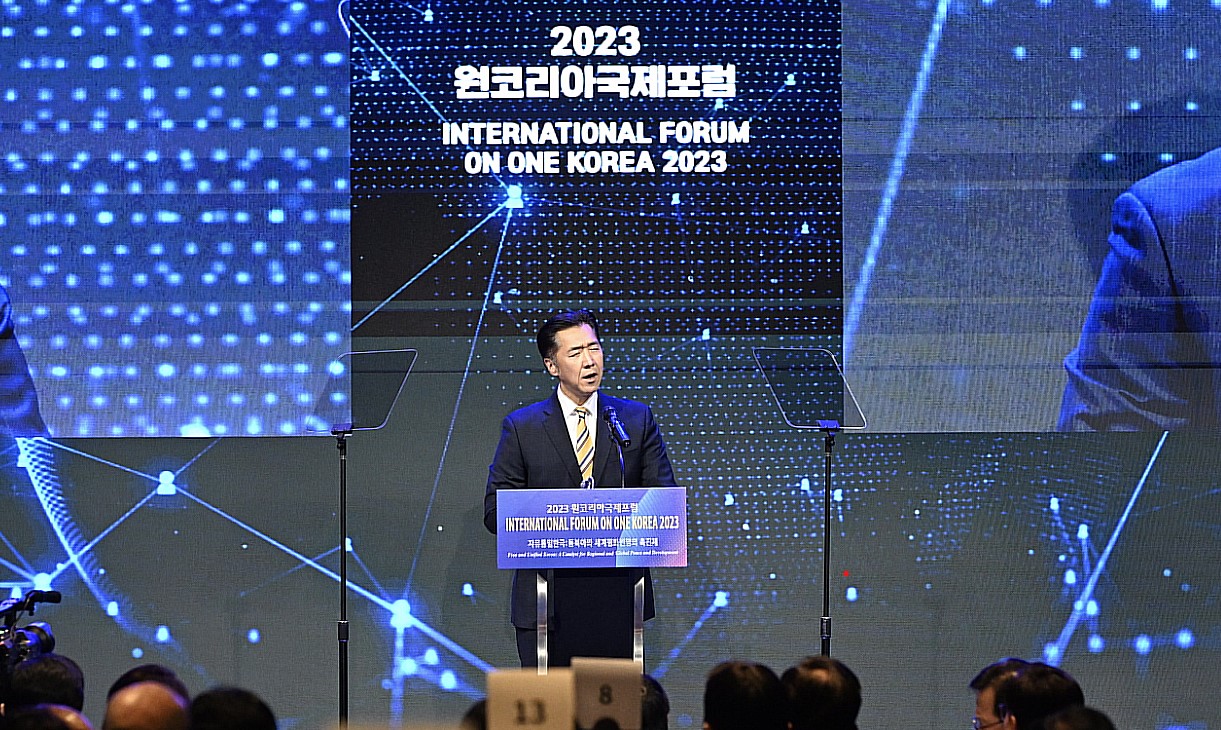
GPF Chairman Dr. Hyun Jin P. Moon said unification must be driven by a civil society movement of Koreans with a renewal of Korean cultural consciousness.
The second challenge, the GPF chairman said, “is for free Koreans to rediscover their Korean identity and reconnect with the destiny we are called to achieve. That is the precondition for overcoming the first challenge. We are one people.
“Reunification based on the Korean Dream framework will restore basic human rights and freedoms to the DPRK and bring peace and security to the Peninsula. In addition, it will create long-term economic benefits. . . . The process of developing North Korea and gradually integrating it into the South Korea’s economy will open many new opportunities for new creative enterprises that will harness and reward the talents of youth here in the South and in the North.”
Regional security and the nuclear threat
During Session II, Peace and Security, Dr. Dong Su Kim, Senior Advisor, National Institute for Security and Strategy, said the three goals of North Korea policy of the Yoon administration are to resolve the North Korean nuclear issue through a “Bold Plan,” promote principled and practical inter-Korean relations, and lay the foundation for peaceful unification with the Korean people and the international community.
Global Peace Institute President Baek San Kim said that up to now, the international community’s efforts to compel North Korea to give up its nuclear program have been through two measures. “One is to use all diplomatically feasible tactics to negotiate with North Korea over its nuclear program. The other is to use military means and risk engaging in an armed conflict.
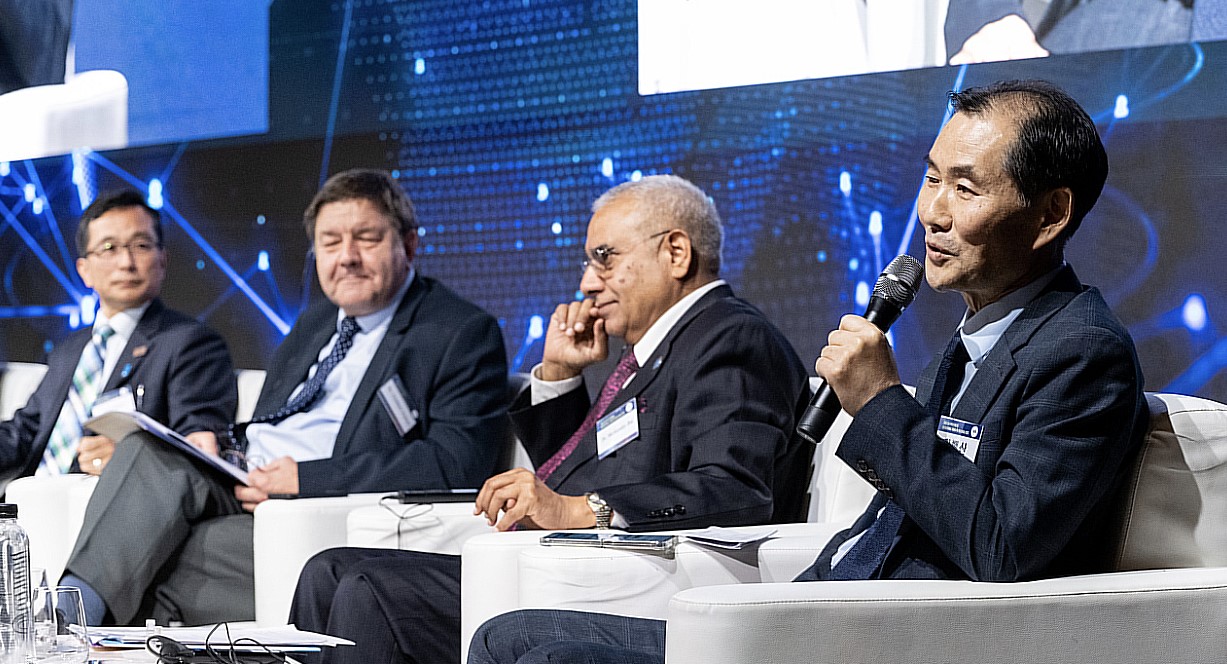
The Peace and Security session said unification was the only viable option to resolve the threat posed by the North Korean regime.
The first option, Kim said, “presents a possibility, a very slight one, that North Korea, on the condition of giving up or freezing its nuclear program, would be guaranteed its regime sustenance with the large-scale support of the international community.” However, this approach acknowledges the legitimacy of three-generations of dictatorship, he said, exonerating the North Korean regime and prolonging the suffering of 25 million North Koreans.
“The second [military] option risks enormous consequences that involve the use of chemical, biological and nuclear weapons [and] can worsen into a global war where the international community gets embroiled and thus an option that should never be chosen.”
The third course of action, Kim said, is to realize peaceful unification on the Korean peninsula. “We call this the Korean Dream Unification. The international community then make concerted efforts to diplomatically settle the Korean peninsula issues, in comprehensive areas such as sanctions and pressure on North Korea, human rights and governance, and economic development.”
Other panelists presenting international perspectives on peace and security included U.S. Col. (Ret.) David Maxwell, a Senior Fellow at the Global Peace Foundation and vice president of the Center for Asia Pacific Strategy; Ambassador Jargalsaikhan Enkhsaikhan, Chairman of Blue Banner and former Mongolian Ambassador to UN; Kenji Sawai, Program Specialist on Northeast Asia Freedom and Human Rights at the Global Peace Foundation; Dr. Vladimir Ivanov, a Russian national and Non-resident Senior Fellow at the Stimson Center, and Dr. Markandey Rai, president of the Foreign Affairs Committee of the Indian Council for International Cooperation and Chairman, of Global Peace Foundation India.
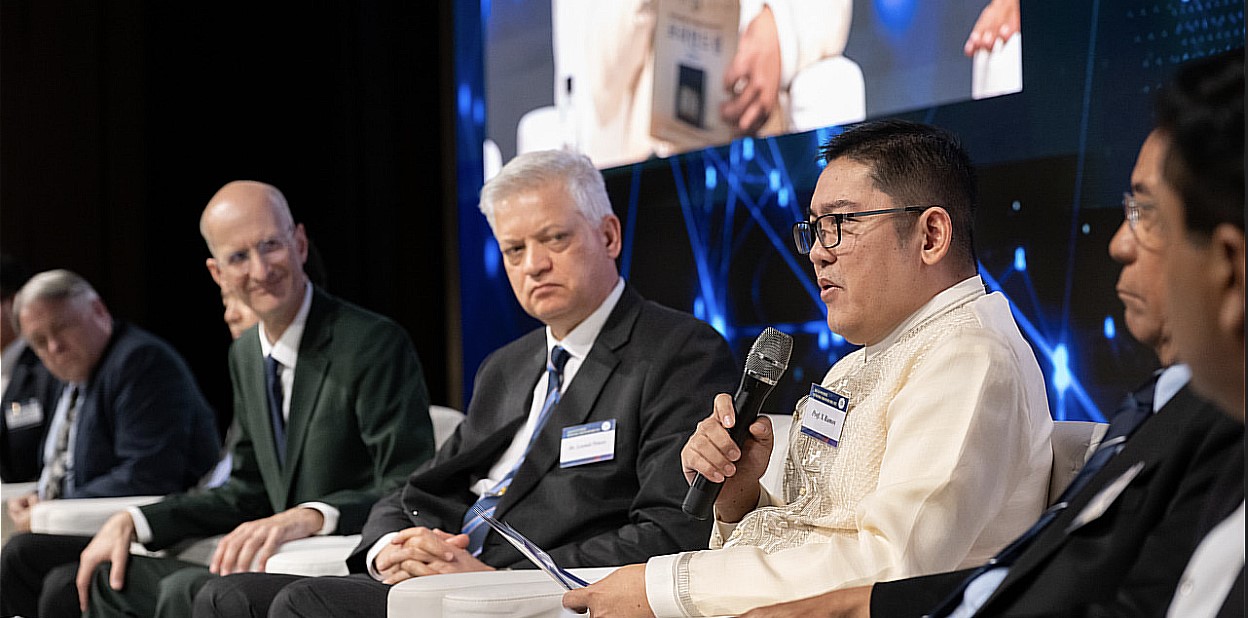
Scholars and economists from the United States, China, India, Australia, the Philippines, and Indonesia the regional economic implications of a unified Korea during a third session.
Addressing the regional economic implications of a unified Korea during a third session, scholars and economists from the United States, China, India, Australia, the Philippines, and Indonesia explored the promise of development, prosperity, and peaceful international commercial exchange through Korean unification.
Kwang Kyu Nam, Professor and Director of the Center for North Korea Studies at the Asiatic Research Institute at Korea University, said a unified Korea is an important opportunity to promote a Northeast Asian economic community. “By expanding human and material exchanges in various fields centered on energy cooperation and free trade agreements a Northeast Asian economic community can be born. In addition, the global economic structure is changing due to the 4th industrial revolution, and Korea and China are leading the way in this field.
“One Korea serves as a transport for free trade connecting the Pacific Rim and the European continent. Large-scale projects linked to the North Korean region and trilateral economic cooperation between South Korea, North Korea, and Russia can become a reality.” –Kwang Kyu Nam
“Peace, economic development, and win-win cooperation represent an unstoppable trend of our time,” said Dr. Laode Masihu Kamaluddin, President of Insan Cita University in Indonesia. “Therefore, addressing any obstacles and opportunities an integrated Korea economy and its impacts on stability and prosperity in the region must be the mission of all nations,” Kamaluddin said. “The first step is economic integration whose goals are free movement of goods, services, investment, and skill workers, and freer movement of capital. From an ASEAN perspective, peace and economic stability on the Korean peninsula will provide the prosperity in the region and the world.”
The International Forum on One Korea was organized in conjunction with the “Korean Dream Festival 2023,” a celebration of Korea’s National Foundation Day on October 3. The festival is mobilizing 100,000 civil society activists and leaders (from the peninsula and the global diaspora) in Seoul and other cities leading to a global campaign of 10 million activists in support of unification in 2025.
The International Forum on One Korea was convened by the Global Peace Foundation, Action for Korea United, and One Korea Foundation in partnership with AKU Professors Association, Alliance for Korea United USA, Blue Banner, Asia Institute and with sponsorship of the ROK Peaceful Unification Advisory Council and Ministry of Unification.
See more highlights of the forum and learn more about the Global Peace Foundation’s One Korea Global Campaign.
Read more:
The Korea Times: Thousands gather in Seoul to support Korean unification
The Korea Times: Global Peace Foundation presents vision for unified Korea through campaign


